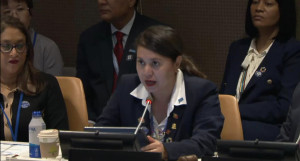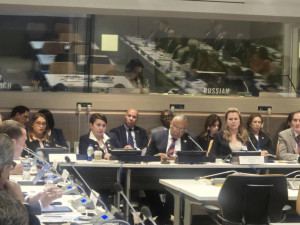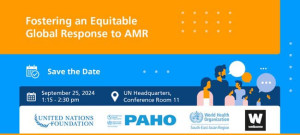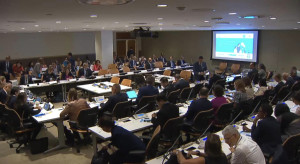Timor-Leste participates in High Level event on Antimicrobial Resistance (AMR) at the 79th United Nations General Assembly

Representing the Prime Minister, Kay Rala Xanana Gusmão, the Minister of Health, Elia Antonio de Araújo dos Reis Amaral, participated on September 25, 2024, in the High-Level Side Event on Antimicrobial Resistance (AMR), entitled “Antimicrobial Resistance: Promoting an Equitable Global Response to AMR”. The event, co-organized by Timor-Leste in partnership with Barbados, Paraguay, Malta, Thailand, the Pan American Health Organization (PAHO), the World Health Organization Regional Office for Southeast Asia (SEARO), the Wellcome Trust and the United Nations Foundation, brought together global leaders to discuss equitable solutions to this growing threat to global public health. 
In her speech, the Minister of Health highlighted the urgency of a coordinated response to antimicrobial resistance, underlining the disproportionate impact of this crisis on the Least Developed Countries. According to the Minister, “the overuse, misuse and abuse of antimicrobials has set the scene for an imminent public health crisis - the emergence of antibiotic-resistant pathogens”. This phenomenon, she added, “now constitutes one of the greatest global health threats of our time”, mainly affecting “people living in the Least Developed Countries”, who have limited access to adequate medical care. 
The event, held on the sidelines of the 79th United Nations General Assembly, reaffirmed that antimicrobial resistance is a global threat that requires urgent and coordinated action. It is estimated that 1.27 million people die each year from antibiotic-resistant infections, with predictions of a significant increase by 2050 if effective measures are not implemented In Timor-Leste, “a ‘Fundamentals First’ approach” has been adopted, with “priority given to essential improvements in water and sanitation”, as well as the “responsible use of antimicrobials”. 
Minister Elia dos Reis Amaral concluded with a call for global solidarity, urging “developed nations to fulfill their ‘common but differentiated responsibilities’ by supporting developing countries”, and stressed the importance of “effective technology transfer and knowledge exchange with pharmacies in the Global South so that we can all benefit from their innovation”.
“Together, we must face up to this challenge and guarantee a healthier and safer future for our children and the generations to come,” concluded the Health Minister.










































